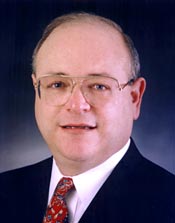 |
||||
|
We Must Fulfill Our Land Grant
Mission and Be an Economic Engine
This year, the University of Minnesota celebrates its 150th birthday - our sesquicentennial. This celebration is not only a chance for the University to say "thank you" to the people of Minnesota for their support over the years, but also an opportunity to look toward the future - to answer the question: what does it mean to be a land-grant university in the 21st century? The University of Minnesota's original land-grant mission was to help more people access post-secondary education, to produce practical and useful research, and to reach out into the community bringing faculty expertise to help solve local problems. This tripartite mission of teaching, research, and outreach still exists for the University today, but the context in which we pursue it is in many ways different than it was 150 years ago. Today, consistent with our original mission, the University remains strongly committed to our students. Over the past few years, we've redoubled our efforts to provide a high-quality, accessible, and humane undergraduate experience. We've streamlined services, brought more faculty into the undergraduate classroom, and expanded residential halls to ensure that every freshman who wants to live on campus can. Throughout our history, we've kept tuition affordable, promoting diversity and access for all of Minnesota's sons and daughters. A century and a half later, the University is a major site for research, but with a much broader focus than the original inquiry into agriculture and the mechanical arts. Today, University faculty are engaged in research ranging from school accountability, to gene sequencing, to asteroids, to nutrition. We have also established research priorities in such areas as molecular and cellular biology, digital technology and design to help leverage our existing strengths and to better meet the needs of Minnesota. Today, the University still fights avian disease and potato rot in the farmland, but the scope of our outreach is broader than the U's founders might have foreseen. For example, we work with elementary and secondary schools to bring the latest and best practices for teaching and learning into the classroom. We help communities plan for the future through the Design Center for Urban American Landscape. And we license our faculty's innovations, like the anti-HIV compounds called Carbovirs, for the benefit of our society. Although our core mission remains the same, the University also faces opportunities and challenges. There is a greater expectation than ever before that the University will play a major role in economic development. We are implementing new techniques and procedures to help speed the transfer of university knowledge to industry. We are also working to educate doctors and pharmacists to meet the needs of rural Minnesota, computer scientists for our growing high-tech industries, and farmers who are skilled in precision farming techniques. The innovations that emerge from our university labs and the 10,000 educated workers we graduate every year are crucial to Minnesota's ability to compete economically in a rapidly changing and highly interdependent world. So, in our 150th year, the University of Minnesota remains committed to its core mission as a land-grant university. It has been the support of the people of Minnesota that has allowed the University its many successes, and it is the people's trust we strive to keep at the dawn of the 21st century. Thank you, Minnesota. What's your vision? Share your thoughts in the MPR Forum. |

